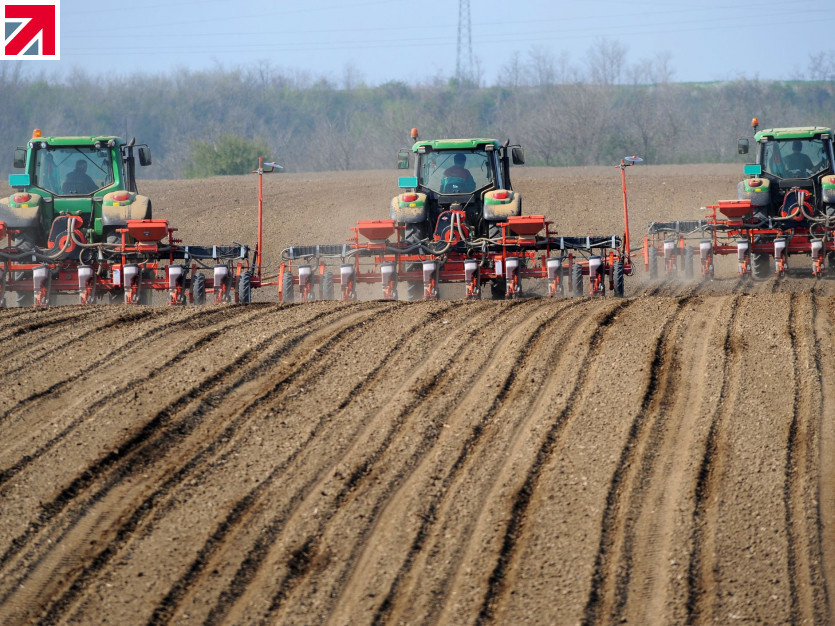Farmers face numerous challenges in the dynamic and ever-evolving agricultural landscape, ranging from market uncertainties to rising input costs. Farmers must leverage the power of networking and buying groups in this era of technological advancements and globalisation.
These collaborations enable farmers to share knowledge, pool resources, and negotiate better deals, ultimately enhancing their productivity and profitability.
Tuffa UK aims to show why farmers' networking and buying groups are invaluable, empowering agricultural communities to thrive in a competitive market.
Farmers' networking creates an environment where knowledge flows freely. The exchange of experiences, best practices, and innovative ideas help farmers to stay abreast of the latest trends, techniques, and technologies. Networking provides a platform for discussing common issues, brainstorming solutions, and conducting workshops, facilitating continuous learning and growth within the farming community.
By learning from one another, farmers can overcome challenges more efficiently and adopt sustainable farming practices that increase yields while minimising environmental impact.
Tuffa works tirelessly with most of the UK's buying groups, and we understand the importance of supporting their work. At LAMMA earlier this year we encouraged all our visitors to visit and buy via the buying groups we deal with. Such is our commitment to them. But why?
Collaboration through buying groups empowers farmers to collectively purchase gateway items such as seeds, fertilisers, machinery, and other supplies.
By pooling their resources, farmers can leverage economies of scale to negotiate favourable prices and access bulk discounts that would otherwise be unavailable to individual farmers.
The collective purchasing power of a group enables members to secure cost-effective inputs, thereby reducing production costs and improving their overall profitability. Additionally, buying groups allow farmers to share equipment and machinery, maximising utilisation and minimising investment burdens for individual farmers.
Proof positive is the fact that the three powerhouses have now joined forces on gateway purchasing. Woldmarsh, AF Group and Fram Farmers have formed a purchasing collective to add additional (and critical) purchasing weight to support the food supply chain further.
Tuffa has taken our support a step further. We support the massive grant initiative from South Staffs and Cambridge Water, which offer grants of up to £15,000 per year for capital and environmental investments.
Never has it been truer that farming carries risks, including unpredictable weather patterns, market fluctuations, and changing consumer demands.
Through networking and buying groups, farmers can jointly manage and, to a degree, mitigate these risks. By diversifying crops, sharing risk management strategies, and collaboratively investing in crop insurance or futures contracts, farmers can minimise the impact of adverse events on their operations.
Moreover, by working together, farmers can identify and capitalise on emerging market opportunities, negotiate better contracts with buyers, and collectively explore new markets, reducing individual vulnerabilities and enhancing market access for all members.
Networking and buying groups play a crucial role in representing the collective voice of the agricultural community. By joining forces, farmers can advocate for policies that support their interests, voice concerns about regulatory challenges, and actively participate in shaping policies at local, regional, and national levels.
Through unified action, farmers can strengthen their position in negotiations with suppliers, processors, and policymakers, guaranteeing their needs are adequately addressed and their contributions to food security and rural development are recognised. One of the primary driving forces behind the number of email campaigns we send to the agriculture market. Yes, we want to sell tanks, but we have a more granular need to inform and support such a vital community.
Networking fosters a sense of camaraderie and community among farmers. The support and encouragement received within these networks can alleviate stress and improve mental well-being, allowing farmers to approach their work with renewed enthusiasm and passion. In an industry that often involves long hours of solitary work, networking provides opportunities for social interaction, building relationships, and reducing the sense of isolation.
Farmers' networking and buying groups are essential for agricultural communities to thrive in a rapidly changing agricultural landscape.
The power of collective action, which must include suppliers, allows farmers to share knowledge, pool resources, mitigate risks, negotiate better deals, and amplify their voices.
Farmers can increase their productivity, profitability, and sustainability through collaboration while fostering a strong sense of community.
As we look to the future, the value of farmers' networking and buying groups cannot be overstated. Empowering farmers to adapt, innovate, and shape the future of agriculture.
Farming Frames Futures.
This article is accredited to Lauren Breslin. Lauren is the Marketing Executive and Results Manager at Tuffa UK Ltd.
Find out more about Tuffa Tanks on their member profile page here
Member-created content 2 years ago | From members
